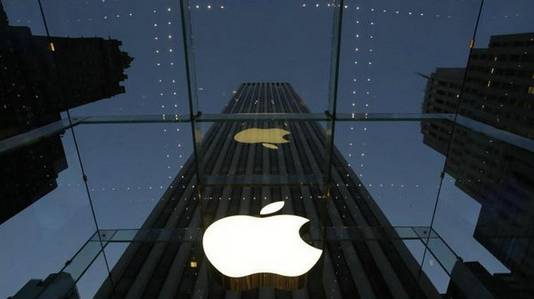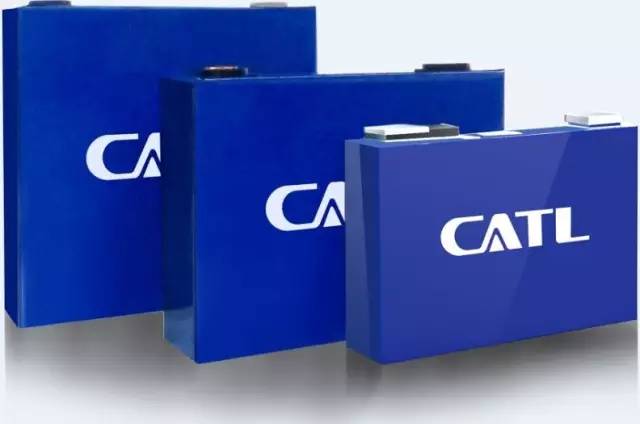
Wen/Li Suiyu
The question of whether Apple will produce a car has become the most intriguing mystery in the tech world.
According to exclusive reports from the First Finance, Apple is quietly working with a Chinese power battery manufacturer to develop a car battery. This confirms that Apple's car project extends beyond just software and includes hardware as well. Apple might indeed be planning to build a car.
On one side, we have Apple, the global tech giant headquartered in Silicon Valley, and on the other, CATL (Contemporary Amperex Technology Co. Limited), a leading power battery manufacturer based in Fujian, China. The two are reportedly collaborating under a strict confidentiality agreement. Sources close to this partnership have informed CBN that they are working together in the realm of power batteries.
Apple and CATL are no strangers to each other. CATL was originally part of ATL (Amperex Technology Company), the world’s largest supplier of batteries for consumer electronics. When CATL was spun off from ATL’s battery division in 2011, it became an independent battery manufacturer. Founders like Zeng Yiqun and Huang Shilin, who were once executives at ATL, played key roles in establishing CATL.
Just a month ago, during the Apple Worldwide Developers Conference (WWDC), CEO Tim Cook told US media that Apple was "focused on automated driving systems" since "we believe this is a very important core technology and almost the mother of all AI projects." However, he didn't mention any specific details about Apple's automotive projects.
Neither Apple nor CATL has publicly acknowledged their collaboration, and CATL has declined to comment on the matter. Wu Hui, Director of the New Energy Division at CCID Consulting, mentioned in an interview with the First Financial Reporter that if Apple and CATL are indeed working together on power batteries, it wouldn’t be surprising if Apple continues to pursue car production. After all, the power battery is one of the core components of autonomous electric vehicles.

In recent years, CATL has rapidly advanced in the field of vehicle batteries. It now ranks among the top three global players alongside Panasonic and BYD in terms of automotive battery sales. Data from the China Chemical and Physical Power Industry Association shows that BYD and CATL topped the list for China's power battery shipments in 2016, with 7.4 GWh and 6.7 GWh respectively. Both companies generated over 10 billion yuan in revenue from lithium-ion batteries last year, with BYD earning 15.26 billion yuan and CATL 14 billion yuan.
Previously trailing Panasonic and BYD, CATL has stepped up its efforts this year to challenge BYD's dominance in the domestic power battery market. According to statistics from Real Research Institutes on the battery installation capacity of various types of electric vehicles in China, CATL accounted for 20.98% of the domestic power battery market in the first half of 2017, with an installed capacity of 1,312.4 MWh. BYD followed closely behind with a market share of 17.35% and an installed capacity of 1,084.9 MWh during the same period.
Unlike BYD's vertically integrated self-sufficiency model, CATL, which is yet to enter the new energy vehicle manufacturing sector, focuses on supplying power batteries to several car companies. Besides close ties with BMW, CATL also supplies batteries to major domestic carmakers such as SAIC, BAIC, Changan, Geely, Great Wall, Yutong, Jinlong, and GAC. Recently, it also became a battery supplier for Beijing Hyundai’s plug-in hybrid electric vehicle, the Sonata. As China continues to promote the growth of new energy vehicles, CATL has been expanding its presence in the power battery field and recently entered the capital market to accelerate its progress.
Tesla, often seen as a model for internet companies, relies on Panasonic batteries.
The collaboration between Apple and CATL has sparked industry speculation that Apple might indeed move forward with car production. Over the past few years, Apple's journey toward building a car has been full of twists and turns. In 2013, Apple announced its entry into the automotive industry with the launch of the iOS in the Car program and the completion of the CarPlay trademark application in November 2013. By early 2014, Apple renamed the iOS in the Car to the CarPlay system. At that time, Mercedes-Benz showcased the C-Class model equipped with the CarPlay system at the Geneva Motor Show. Other car manufacturers, including Ferrari, BMW, General Motors, Ford, Honda, Hyundai, Nissan, and Toyota, also exhibited models featuring integrated interfaces with CarPlay.
In 2015, Apple began recruiting extensively, including luring talent from traditional car companies with high salaries, forming its own car R&D team, and naming its car project the "Titan Plan." At WWDC in June 2016, Apple announced updates to its smart car system, CarPlay, with iOS 10, positioning it as the ideal partner for the new Apple Maps and Siri. While the industry anticipated Apple's disruptive new energy vehicle products, Apple shocked the world in October 2016 by abandoning its automaker ambitions and shifting focus to unmanned technology systems instead.
However, Cook's recent comments have reignited speculation across Wall Street and Silicon Valley that Apple will ultimately produce cars.
Switching Power Supply Transformer,High Frequency Switching Power Transformer,High Power High-frequency Transformer,Small electrical transformer
Xuzhou Jiuli Electronics Co., Ltd , https://www.xzjiulielectronic.com
